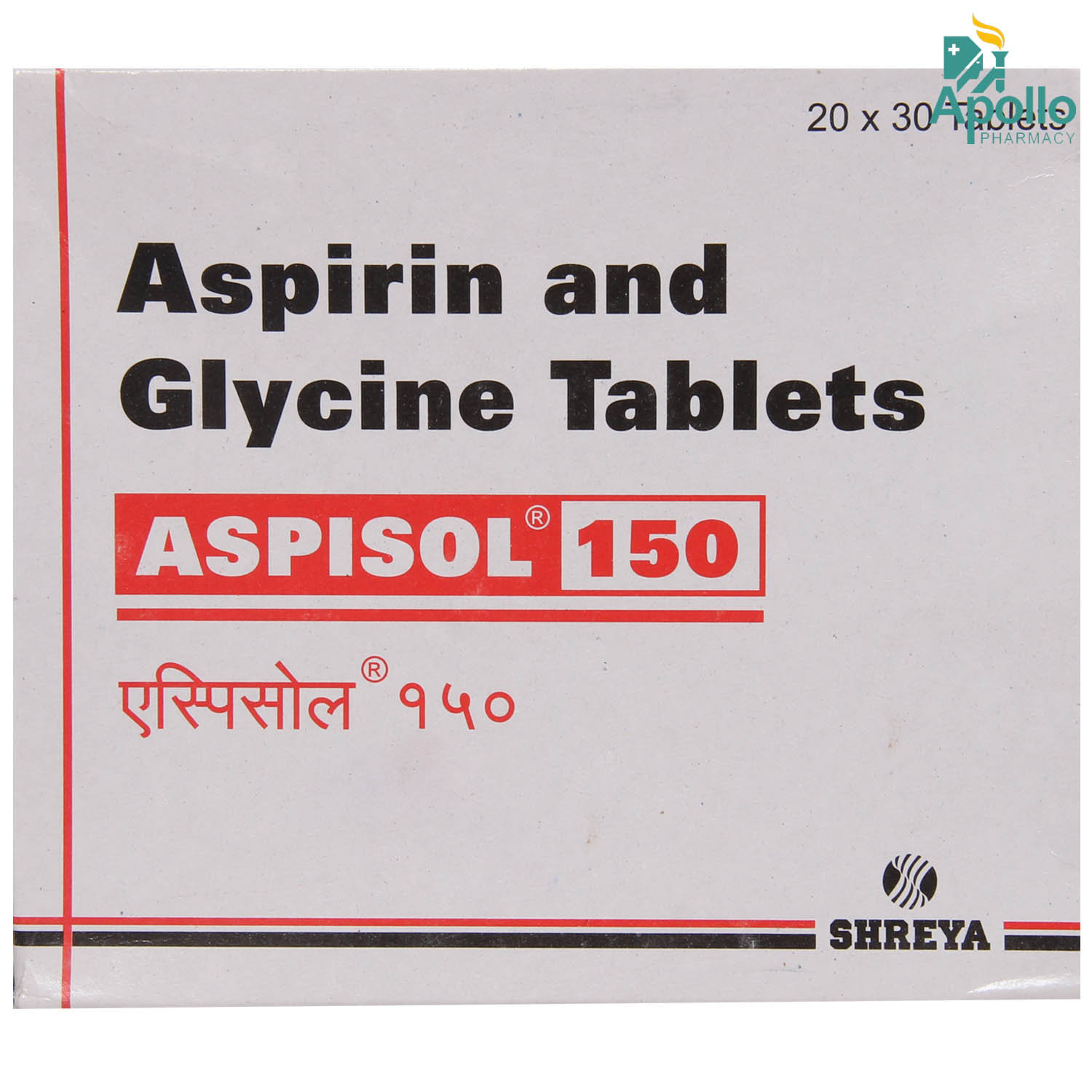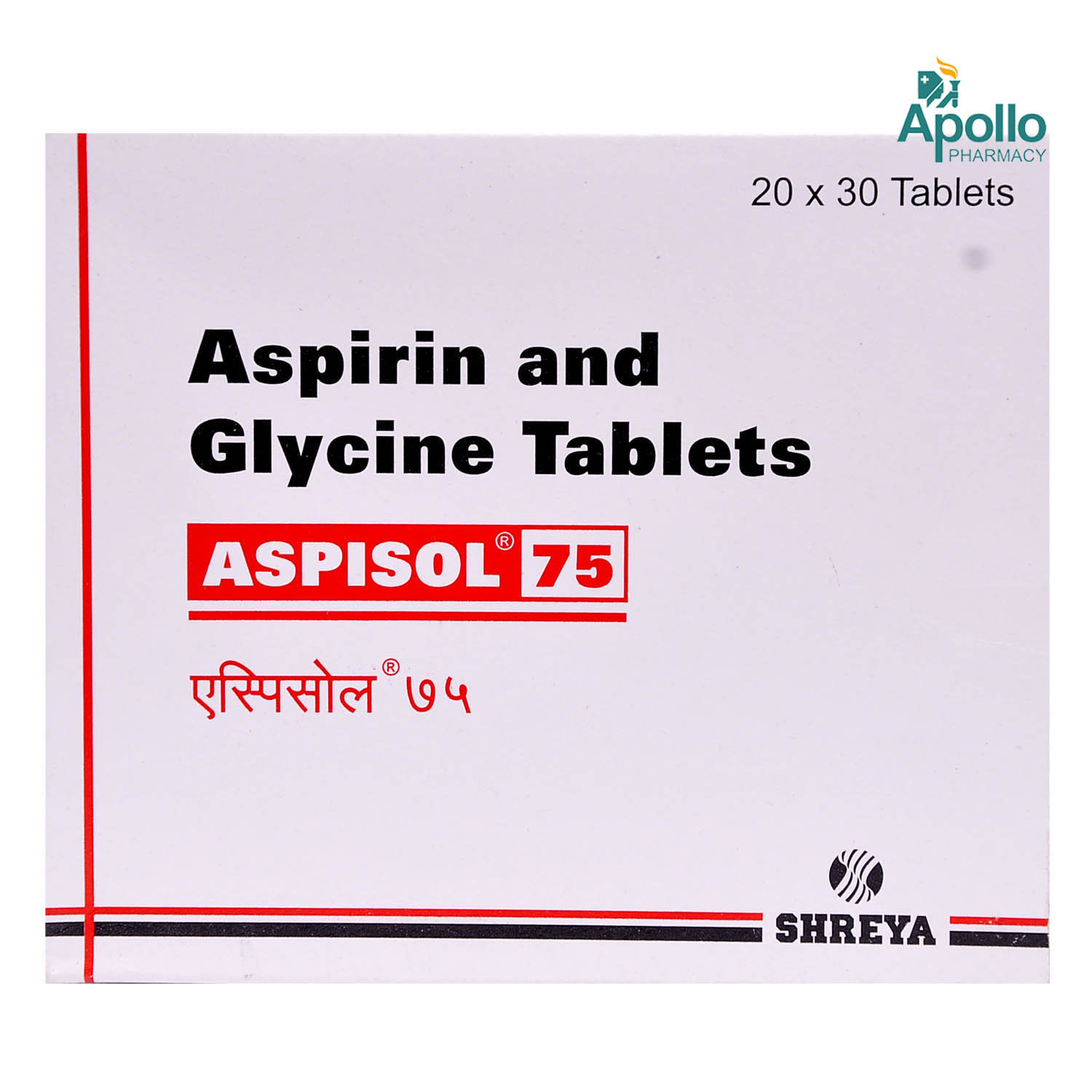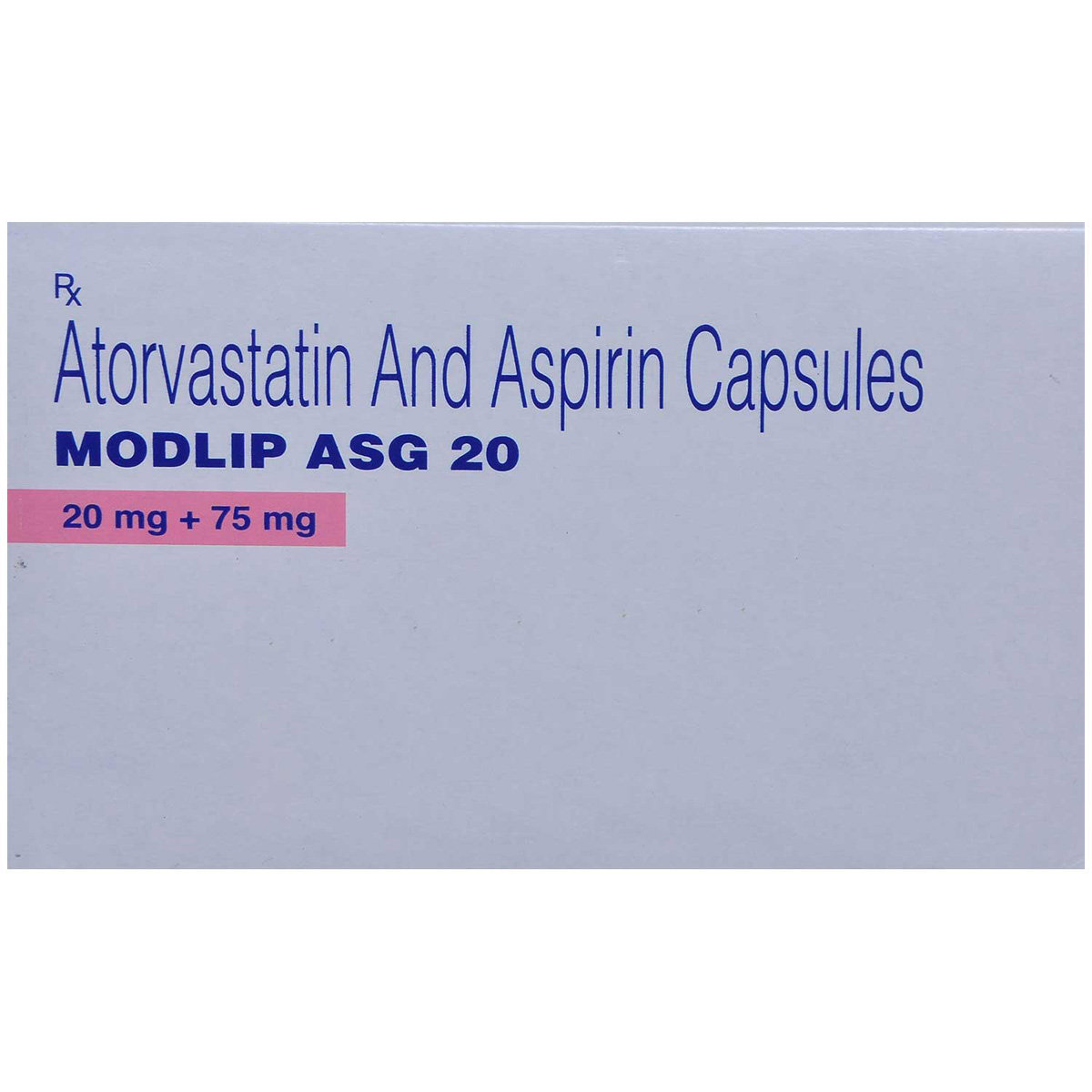Aspirin+glycine
About Aspirin+glycine
Aspirin+glycine belongs to the group of antiplatelet agents used for the prevention of stroke and heart attack which occur due to a cessation of blood supply. Heart attack/myocardial infarction is a condition in which the heart does not receive an adequate level of blood supply due to the formation of clots along the way which prevents the free flow of blood. A stroke is an interruption to the blood supply reaching the brain, thereby preventing brain tissue from receiving enough oxygen and nutrients.
Aspirin+glycine contains ‘’Aspirin and Glycine.’’ Aspirin helps in dissolving clots, which are formed by the clumping together of blood cells called platelets. It helps in reducing the risk of blood clot formation, thereby ensuring seamless and free flow of blood. Glycine, an amino acid helps prevent damage to the stomach lining and acid build-up, thereby lowering the harmful effects of aspirin. Together, Aspirin+glycine helps prevent heart attack and stroke.
Aspirin+glycine is a prescription-only medicine. It may be taken with or without food. Aspirin+glycine should be swallowed whole with a glass of water. Do not crush, chew or break it. In some cases, Aspirin+glycine may cause certain common side effects such as diarrhoea, indigestion, easy bleeding and bruising. Most of these side effects do not require medical attention and will resolve gradually over time. However, you are advised to talk to your doctor if these side effects persist.
Keep your doctor informed if you have recently had any surgery. Inform the doctor if you are on antihypertensive, hormonal, anti-diabetes, diuretic, steroid, immunosuppressant, antacid, blood thinner, anti-inflammatory, anti-glaucoma, chemotherapy or mental health therapy. Consult your doctor before taking Aspirin+glycine during pregnancy or if you are breastfeeding. Talk to your doctor before taking alcohol with Aspirin+glycine. Drive with caution as Aspirin+glycine may cause decreased alertness.
Uses of Aspirin+glycine
Medicinal Benefits
Aspirin+glycine is a combination drug that works as an anti-platelet and helps in dissolving blood clots, thereby easing the free flow of blood. It hence finds application in disorders that occur due to an interruption of blood supply, like heart attack, stroke and angina. Aspirin+glycine contains Aspirin and Glycine. Aspirin inhibits the cyclooxygenase enzyme (COX enzyme). COX is responsible for catalysing the formation of inflammatory mediators called prostaglandins, and clotting agents called thromboxanes. By inhibiting COX, aspirin suppresses the formation of clotting agents thromboxanes, which would otherwise lead to blood clots. Thereby, aspirin works as a potential blood-thinner, helping blood flow normally and in a fluid manner. Glycine is an essential aminoacid, which has a cardioprotective role. It helps in building the health of cardiac tissue and in enhancing remodelling. It also protects the heart from pressure overload. Thus, Aspirin+glycine finds widespread application in the prevention of heart attack, stroke and angina.
Directions for Use
Storage
Side Effects of Aspirin+glycine
- Nausea
- Indigestion
- Diarrhoea
- Increased tendency for bleeding
- Feeling sick
- Hives
Drug Warnings
Do not use Aspirin+glycine if you are allergic to Aspirin+glycine, to NSAID’s or any of the components of Aspirin+glycine. Keep your doctor informed if you suffer from any bleeding disorders, asthma, peptic ulcers, diabetes, hypertension, cardiovascular disorders, kidney disease, liver disease, rheumatoid arthritis, anaemia, menorrhagia, gout, nasal polyps (growths in the nose) and or unusual swellings anywhere in the body. Inform your doctor if you have recently had any surgery. Offer a detailed medical history and inform the doctor if you’ve ever had a heart attack or stroke. Inform the doctor if you are on antihypertensive, hormonal, anti-diabetes, diuretic, steroid, immunosuppressant, antacid, blood thinner, anti-inflammatory, anti-glaucoma, chemotherapy or mental health therapy. Consult your doctor if you are pregnant or breastfeeding. Talk to your doctor before taking alcohol with Aspirin+glycine.
Drug Interactions
Drug-Drug Interactions: Aspirin+glycine may interact with immunosuppressants (ciclosporin, tacrolimus), blood thinners (clopidogrel, warfarin, heparin, phenindione), anticancer drug (methotrexate) and antiviral drugs (ritonavir, lopinavir, atazanavir, darunavir, indinavir), antipsychotics (clozapine), water tablets (furosemide), heart-related medicines (digoxin, amiodarone, verapamil), antimanic drug (lithium), anticonvulsants (valproate, phenytoin), pain killer (ibuprofen), antidiabetic drug (glibenclamide), gout medicine (probenecid), medicines used to treat glaucoma (acetazolamide).
Drug-Food Interactions: No interactions found/established.
Drug-Disease Interactions: Aspirin+glycine should be used with caution in patients with a known hypersensitivity disorder, angioedema, stomach ulcers, glaucoma, severe kidney problems, liver disease, gout, asthma and uncontrolled diabetes or hypertension.
Drug-Drug Interactions Checker List:
Safety Advice

Alcohol
unsafeAvoid taking alcohol with Aspirin+glycine as it may increase the risk of intestinal bleeding. Consult your doctor if you have any concerns.

Pregnancy
unsafeAspirin+glycine is not recommended for use during pregnancy, especially during the last three months. Consult your doctor if you have any concerns.

Breast Feeding
cautionAspirin+glycine should be used with caution during breastfeeding. Consult your doctor if you have any concerns.

Driving
cautionDrive or operate machinery with caution as Aspirin+glycine may cause decreased alertness.

Liver
cautionAspirin+glycine should be used with caution in those with pre-existing liver disease. Please consult your doctor in case of any concerns.

Kidney
cautionAspirin+glycine should be used with utmost caution in those with pre-existing kidney disease. Please consult your doctor in case of any concerns.

Children
unsafeAspirin+glycine is unsafe to use in children under 12 years of age. Please consult your physician if you have any concerns.
Habit Forming
Diet & Lifestyle Advise
- Reducing weight and having a healthy BMI is very important in enhancing cardiac health.
- 30 minutes of daily physical exercise can go a long way in preventing heart disease.
- Avoid smoking to improve cardiac health.
- Invest in a healthy, balanced diet. Avoid fatty foods, keep your cholesterol in check and load up on the green leafy vegetables, fish, lean meats, nuts and dry fruits.
- Reducing stress is very important in keeping a healthy heart. Try yoga and meditation for a relaxed state of mind.
Special Advise
- Take Aspirin+glycine exactly as prescribed.
- In case you miss a dose of Aspirin+glycine, talk to your physician. Never take a double dose.
- Do not discontinue taking Aspirin+glycine abruptly or without the advice of the physician.
- Please know that your doctor may order blood tests to check your hormone levels while you are on Aspirin+glycine.
- Your doctor may order a D-dimer to check your clotting profile while on Aspirin+glycine.
- Your doctor may order liver function tests (LFT’s) and a complete blood picture (CBP) to ascertain the effects of Aspirin+glycine.
Patients Concern
Disease/Condition Glossary
Heart Attack: A heart attack (called myocardial infarction) is a serious medical emergency in which blood supply to the heart is interrupted, usually by a blood clot that forms along the way. Symptoms of a heart attack include chest pain, jaw pain, pain on the left side of the body, nausea, dizziness, sweating, a feeling of impending doom etc.
Stroke: A stroke is an interruption of blood supply to the brain, leading to a lack of oxygen and nutrients received by the brain. A stroke is a medical emergency. Trouble walking, difficulty in understanding speech and in speaking, numbness of the limbs and dizziness are some symptoms of a stroke.
FAQs
Aspirin+glycine works by dissolving blood clots and preventing any cessation of blood supply to the heart or brain.
Aspirin+glycine is not recommended in those suffering from chronic kidney disease. Keep your doctor informed in case of a history of kidney disease.
Aspirin+glycine is very useful in the prevention of a heart attack, in conjunction with other medicines that will be prescribed by your cardiologist. A heart attack is multi-factorial. It is also a medical emergency for which you will need expert prescription and medical care. In case you experience any symptoms of a heart attack, please rush to the hospital.
As warfarin is also a blood thinner, concomitant use with Aspirin+glycine is not recommended as it may lead to bleeding.




